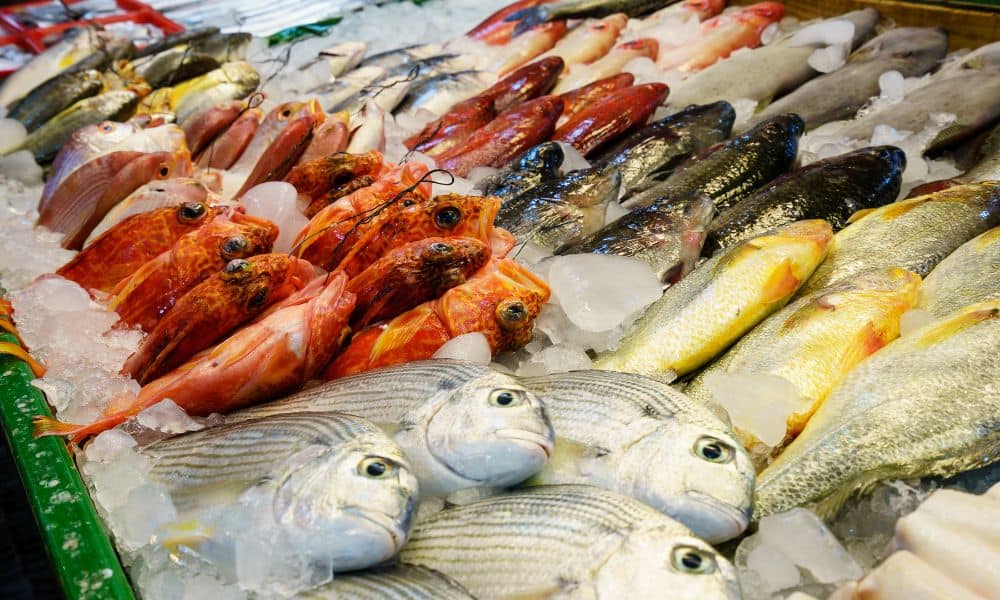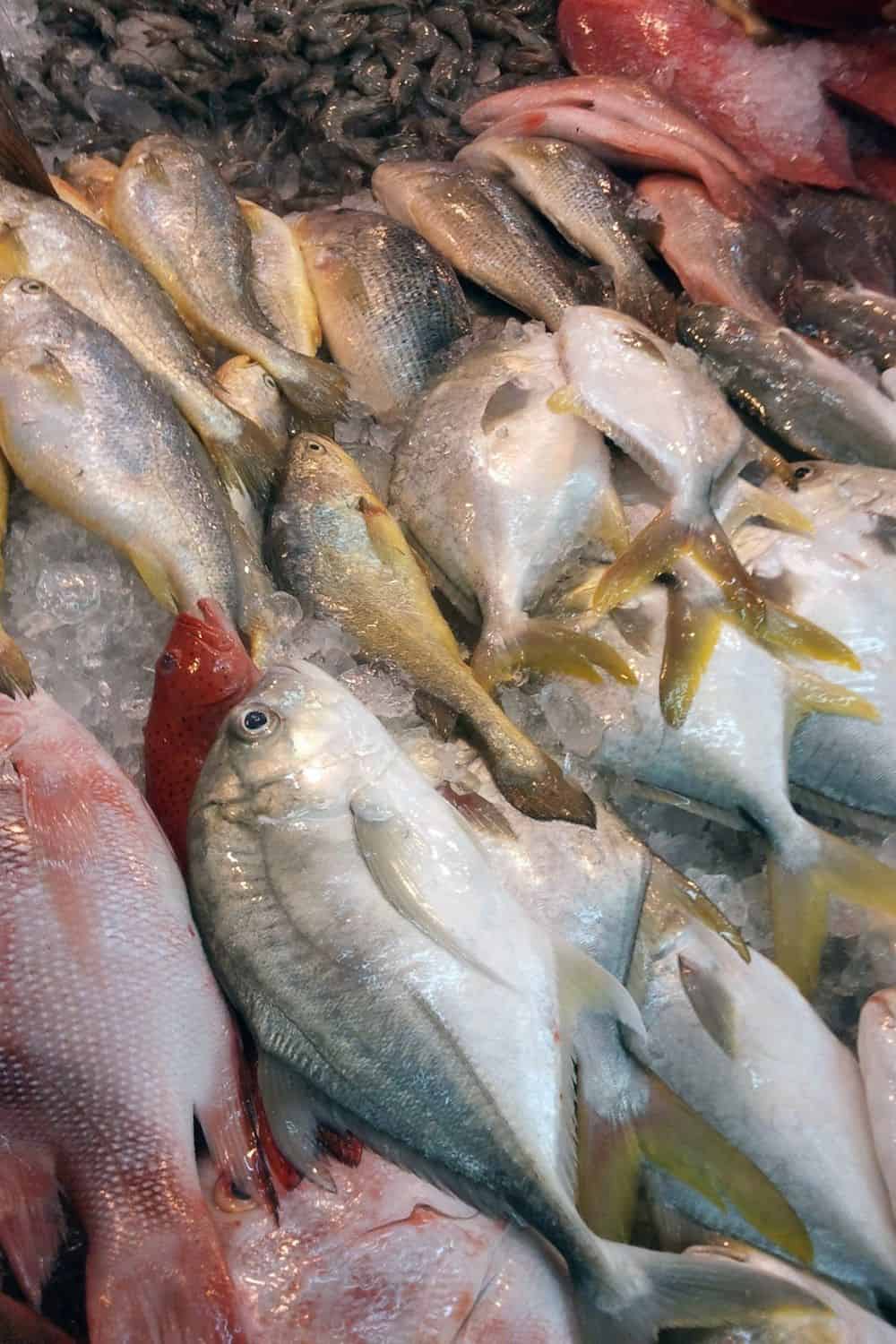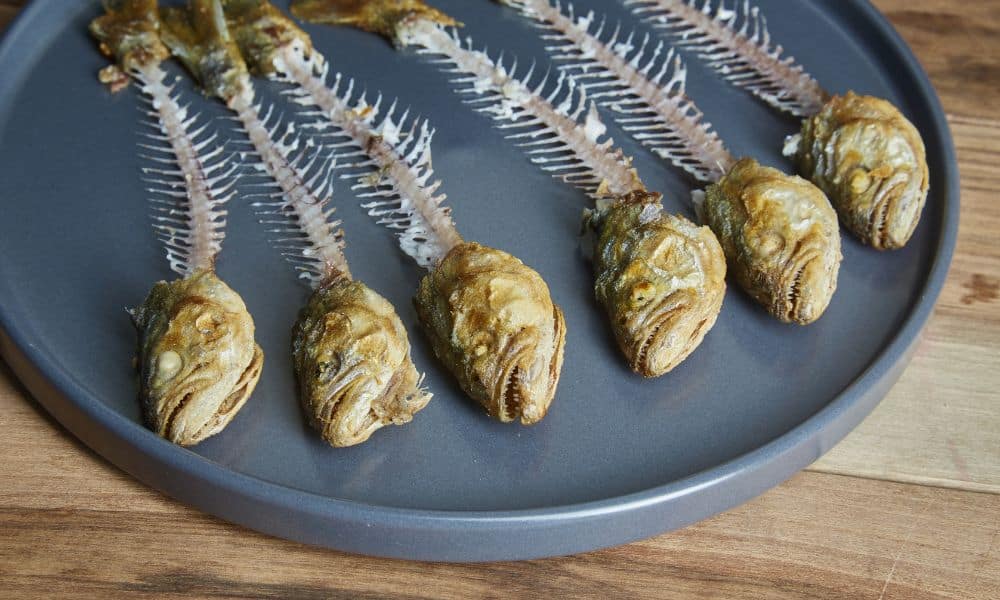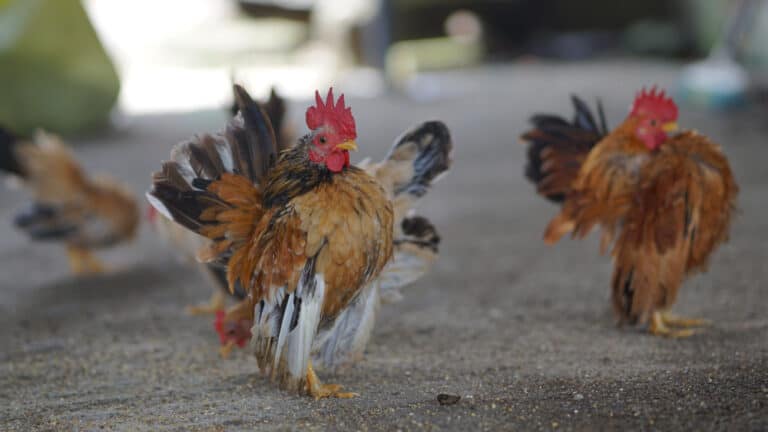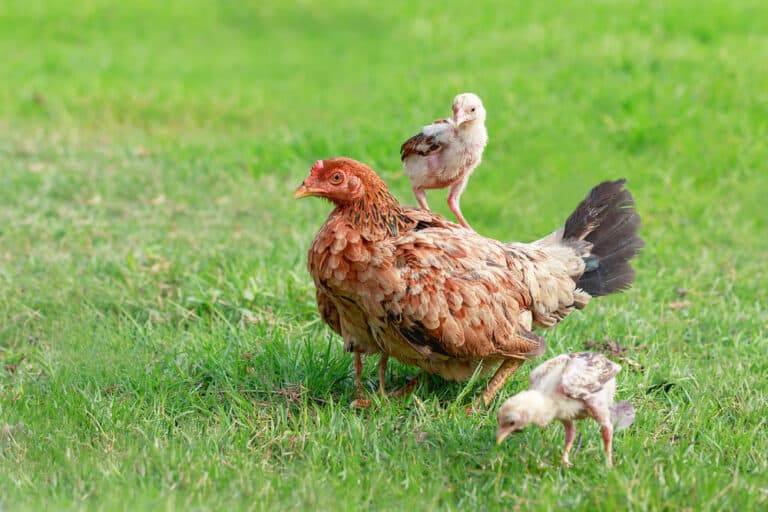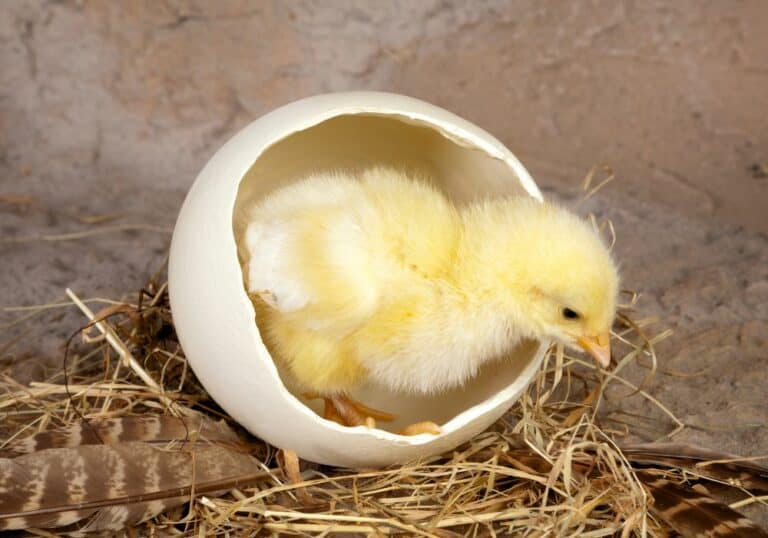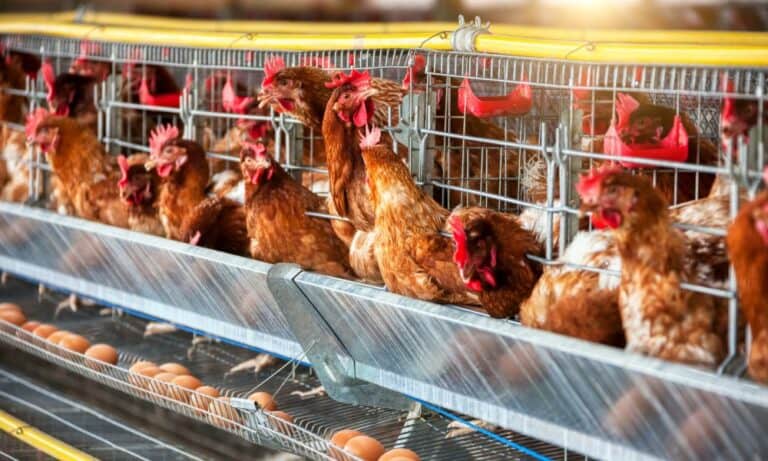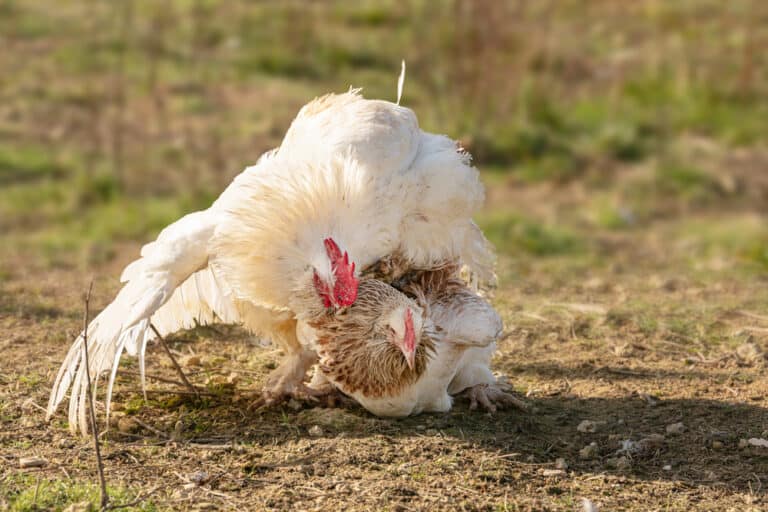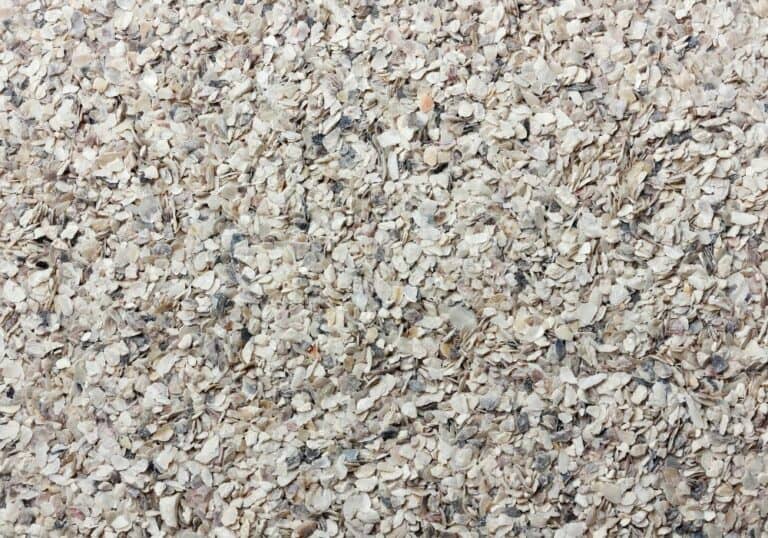Along with their regular feed, there are many delicious treats we can give our chickens that help keep things interesting for them by varying their diet while also providing a whole range of beneficial nutritional goodness.
However, although something like fish is considered healthy for humans, it’s only natural to wonder if it’s something you can feed to your birds – so to give you all the info you need, in this post, we answer the question, can chickens eat fish?
Can Chickens Eat Fish? The short answer
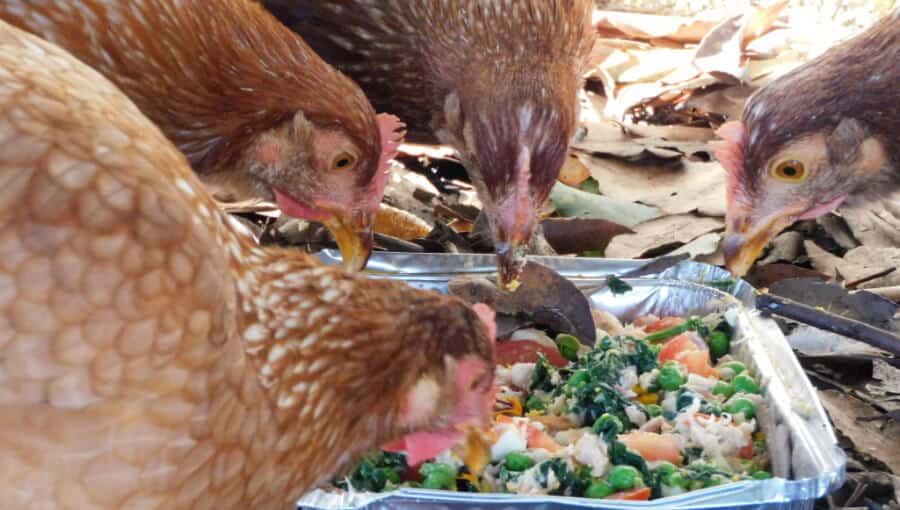
Before we get into the details of this topic, let’s start with a simple answer.
Can chickens eat fish? Yes, they can, and fish can be a healthy and beneficial supplement to their regular diet.
However, when it comes to feeding fish to chickens, there are quite a few provisos to bear in mind, so before you head to the fishmonger to buy some fresh fish for your birds, let’s delve into this question in a bit more depth.
Is fish good for chickens?
Sometimes, we might think our chickens are simply walking disposal units for our kitchen and garden waste.
However, although they will eat almost anything that comes their way, if you want to keep them healthy and productive, you should be picky about the food they eat, even if they aren’t.
This means giving them only foods that are beneficial to their health while avoiding anything with no nutritional value or even that will harm them, so what about fish?
Fish is a rich source of high-quality protein, and this is something chickens need in their diets, especially at certain times of the year like during the fall molt or the colder winter months.
However, too much protein can lead to several health issues in chickens, including kidney problems and obesity, so while some fish protein in chickens’ diets is considered healthy, too much can make them sick.
Fish also contain omega-3 fatty acid, which is beneficial to both human and chicken health. It is known to reduce heart disease, strengthen bones, and provide an immunity boost, helping to fight conditions such as coccidiosis in chickens.
Of course, different types of fish have different nutritional profiles, but most are good sources of vitamin D and calcium among other vitamins and minerals.
For this reason, eating fish has many benefits including allowing chickens to lay stronger eggs and improving their overall immune systems.
What types of fish can chickens eat?
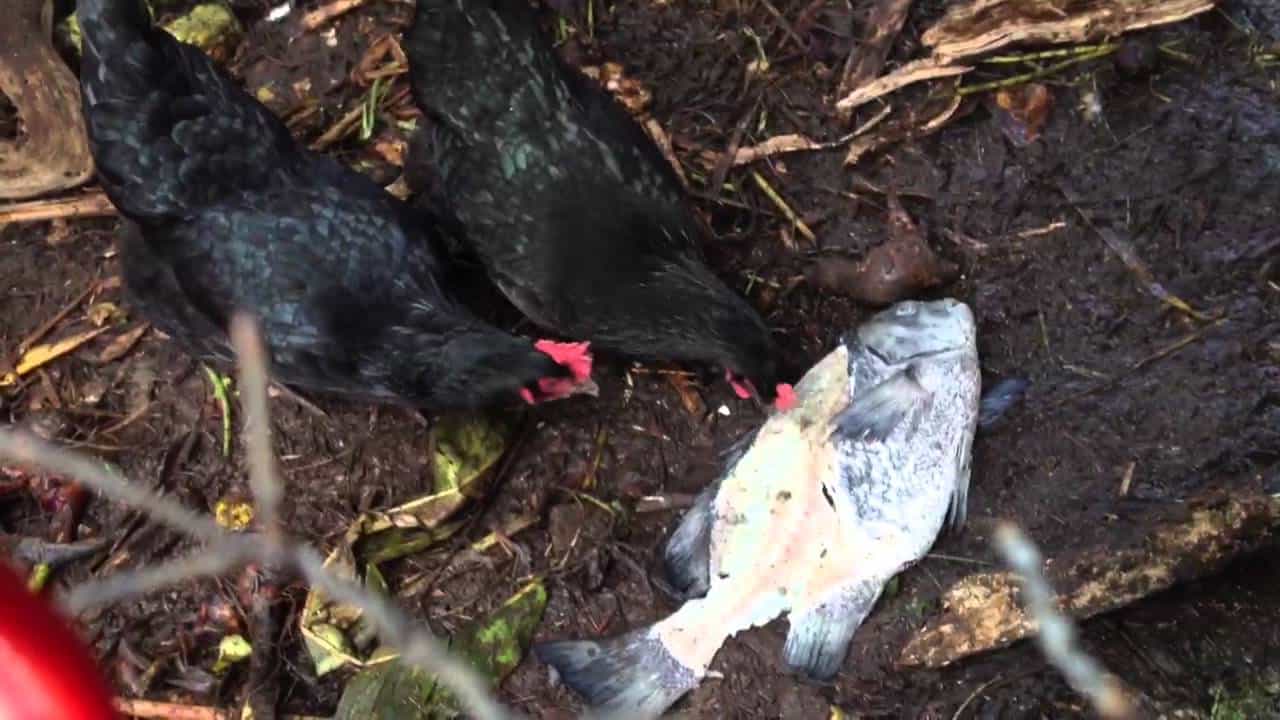
Not all fish are the same when it comes to feeding them to chickens, and some types are highly recommended while others are best avoided or should be fed to chickens only in extreme moderation.
The best types of fish to give to chickens are plain white types, and you can give them the cheaper cuts that people don’t tend to like – chickens are far less fussy than us in this respect.
Some species to consider include cod, bass, haddock, halibut, pollock, sardine and tilapia.
Chickens can be fed cooked fish, raw fish or dried fish – so long as it hasn’t been salted or doesn’t otherwise include anything that’s harmful to chickens.
Can chickens eat shellfish?
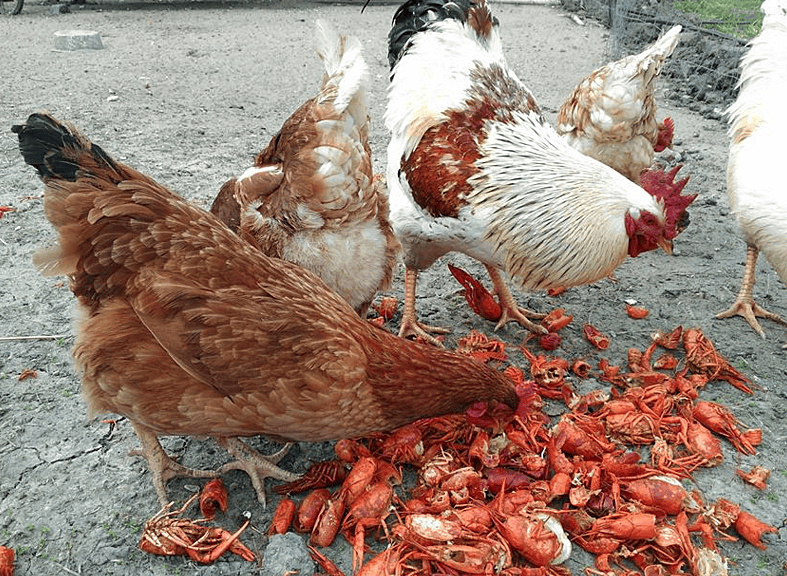
Yes, chickens can also eat shellfish, and shellfish also has some great health benefits.
If you feed chickens prawns with the shells on, the chickens may also eat the shells, and these contain valuable minerals such as calcium.
What types of fish shouldn’t chickens eat
Although there are lots of types of fish that chickens can eat, there are also lots to avoid completely – and others that should be fed to chickens only occasionally if at all. Here are some of the things you need to be careful with.
1. Fish especially high in protein
While fish is a great source of protein for your chickens, species with especially high levels of protein should only be fed to chickens in very small amounts. Otherwise, your birds may end up suffering from issues such as kidney problems and obesity.
Fish in this category include species such as yellowtail, snapper and anchovies.
2. Very fatty fish
Fish with a high fat content can cause obesity in chickens, and species to avoid for this reason include salmon, king mackerel and eel.
3. Fish with high mercury levels
Fish at the top of the food chain tend to accumulate high levels of mercury, and these species should only be eaten in moderation even by humans.
However, chickens are less able to process the mercury than we are, so these types of fish should only be fed to chickens rarely and in small quantities – and some people prefer to avoid them altogether.
These species include sharks, swordfish, salmon and tuna.
4. Processed or canned fish
Feeding canned fish to chickens can depend on how the fish is preserved. For example, fish preserved in olive oil can be ok for chickens if you drain the oil first (to reduce the fat content), but fish preserved in brine is not good for fish due to the high amounts of salt.
Similarly, flavored canned fish is not recommended for chickens due to the potential salt and sugar content.
When it comes to processed fish, this is also best avoided since it is likely to contain a range of ingredients that are not safe for chickens to consume.
5. Seasoned fish or fish served with non-chicken-friendly ingredients
You can feed fish scraps to chickens, but only if the fish hasn’t been seasoned or prepared with non-chicken-friendly ingredients.
For example, salted fish or fish seasoned with salt is bad for chickens, and anything cooked with anything from the onion family should be avoided. The exception is garlic since the harmful compounds found in onions are only present in garlic in much smaller amounts.
6. Spoiled fish
Finally, don’t give fish to your chickens if it’s already gone bad. Chickens like fresh fish just the same as we do. However, they might be more willing to dig into some fish that’s gone bad than we are – but it will still make them ill, so don’t let them have it.
What about the bones?
Another question many people might have concerns fish bones, so are they safe for chickens to eat?
In general, they’re safe for chickens to eat. Chickens can easily swallow and digest smaller bones, and they even provide some extra calcium to chickens.
Cooked fish bones tend to be quite soft anyway, so the choking hazard is usually minimal.
However, very large or sharp bones can still be dangerous for chickens, and although they will usually try to avoid eating them, they may accidentally swallow one, so for these types of bone, it’s best to remove them first.
How should you prepare fish for chickens?
There’s no particular way to prepare fish for chickens, and you can feed fish to them raw, cooked or as scraps from your plate.
As we’ve mentioned, the most important thing to remember is that the fish shouldn’t be prepared with any other ingredients that are harmful to chickens, but other than that, you can do whatever works best for you and your birds.
You can also feed fish guts to chickens, but in this case, it’s best to cook them first. This is because fish guts can sometimes contain parasites, so cooking them first will make sure the parasites are dead and unable to infect your chickens.
Moderation is the key
When feeding any treats to chickens, moderation is always the key to success – but with fish, it’s even more important.
Treats should never make up more than 10% of your chickens’ diet, with the other 90% coming from their regular feed.
However, if you feed your chickens too much fish, they will end up eating too much protein, which, as we’ve already mentioned, can lead to several serious health issues.
Furthermore, some people have reported that the eggs of chickens that eat lots of fish also come out with a fishy taste.
This is anecdotal rather than proven, but it would seem to make sense – although it’s unlikely that feeding chickens a little fish from time to time would have this effect.
As a result, the best advice is to feed fish to chickens even more sparingly than other types of treat, so if your chickens are getting fish once a week at most, this will be a great way to supplement their dietary protein without them experiencing any of the ill effects.
This means that although chickens are allowed up to 10% of their diets to be made up of treats, that 10% shouldn’t come from fish alone – but fish can contribute to the 10% as part of a healthy and balanced diet.
A healthy addition to chickens’ diet – in moderation
As we’ve seen, although there are quite a few types of fish that should be avoided, many other types are suitable for chickens to eat and contain plenty of important nutrients and other dietary goodness like protein and omega-3 fatty acid.
However, fish should be fed to chickens only as an occasional treat, perhaps more so even than most other types of treats. But as long as you give it to your birds in moderation and don’t feed them fish more than once a week, it’s sure to be a nutritious treat your birds will love.

